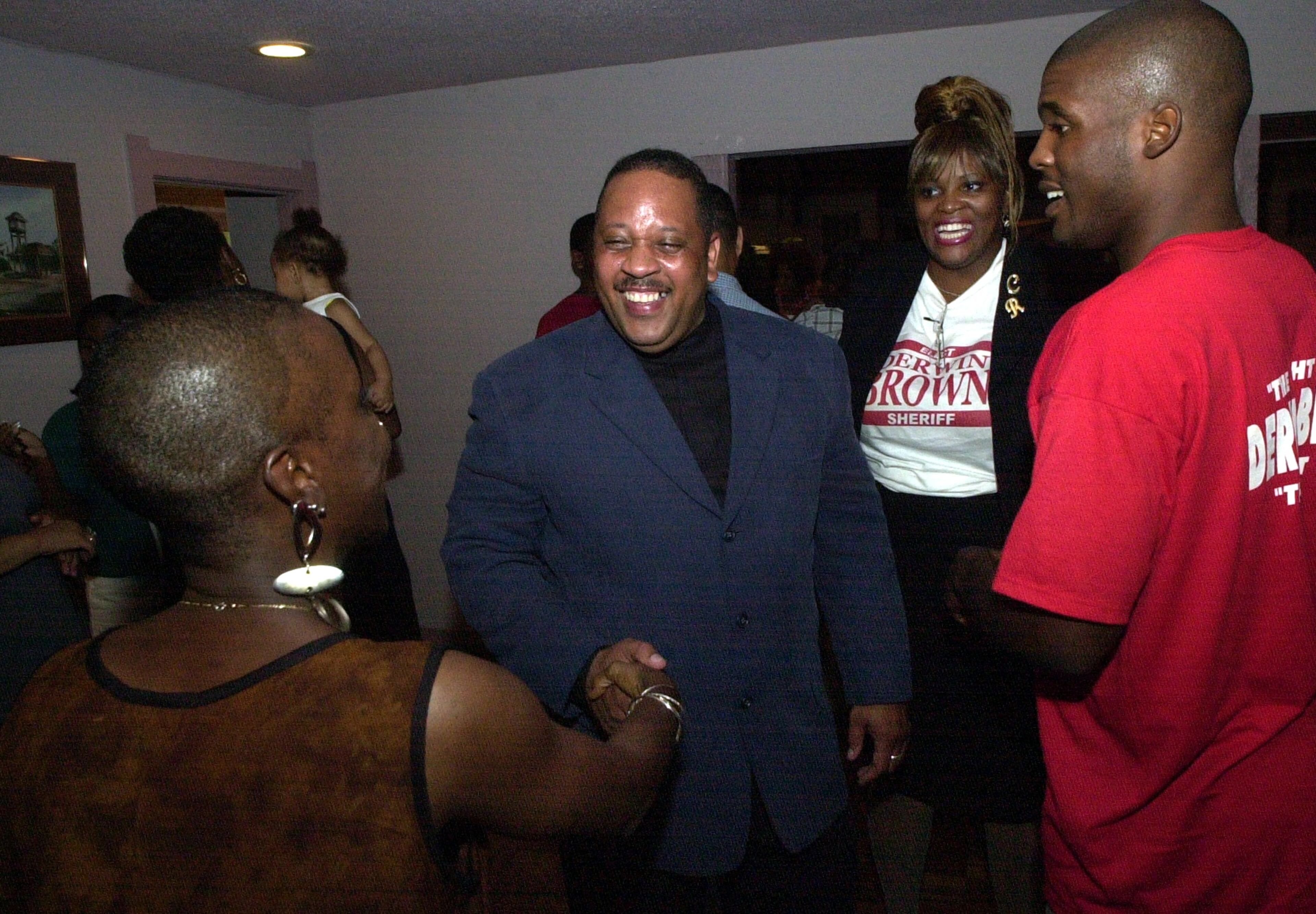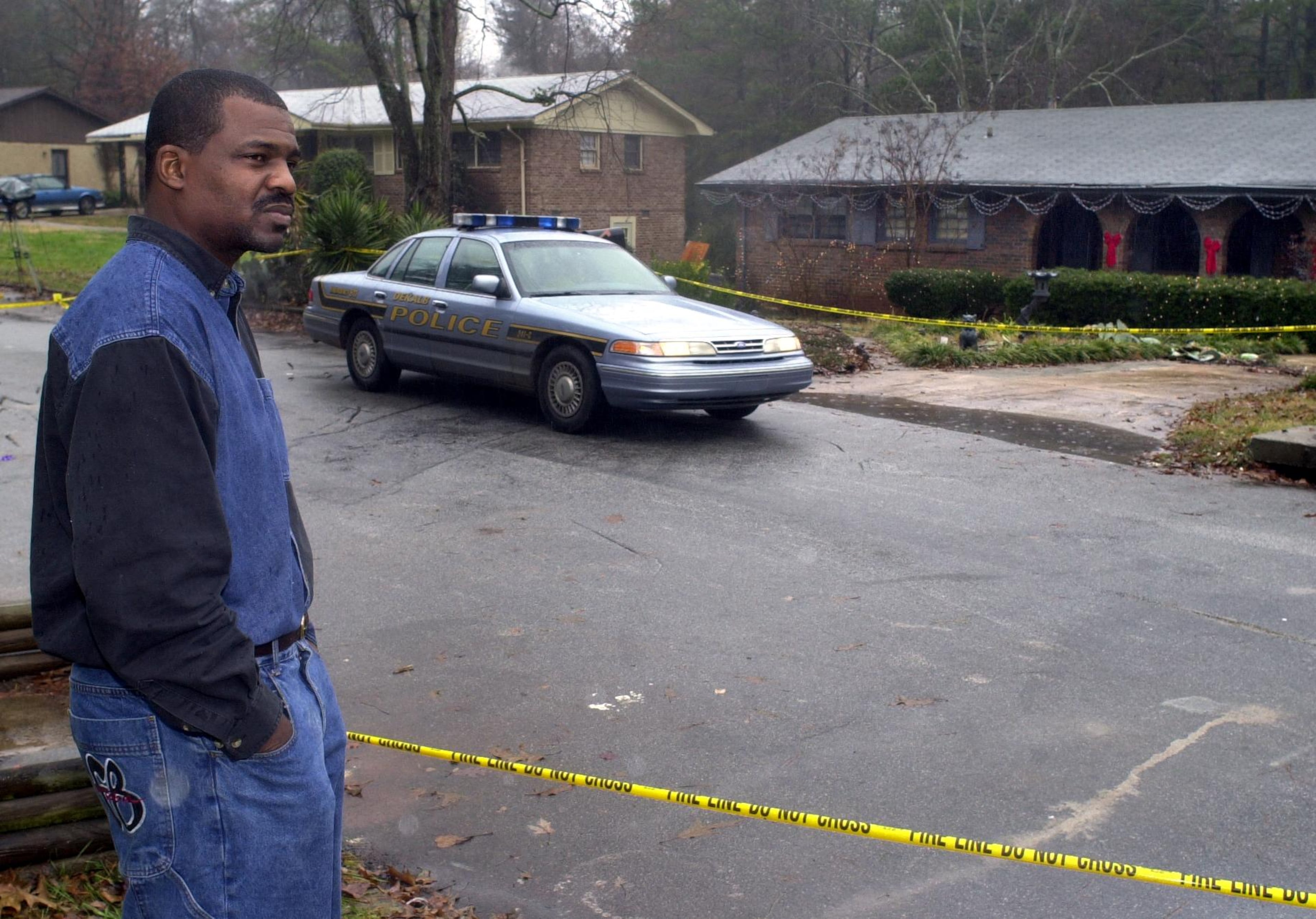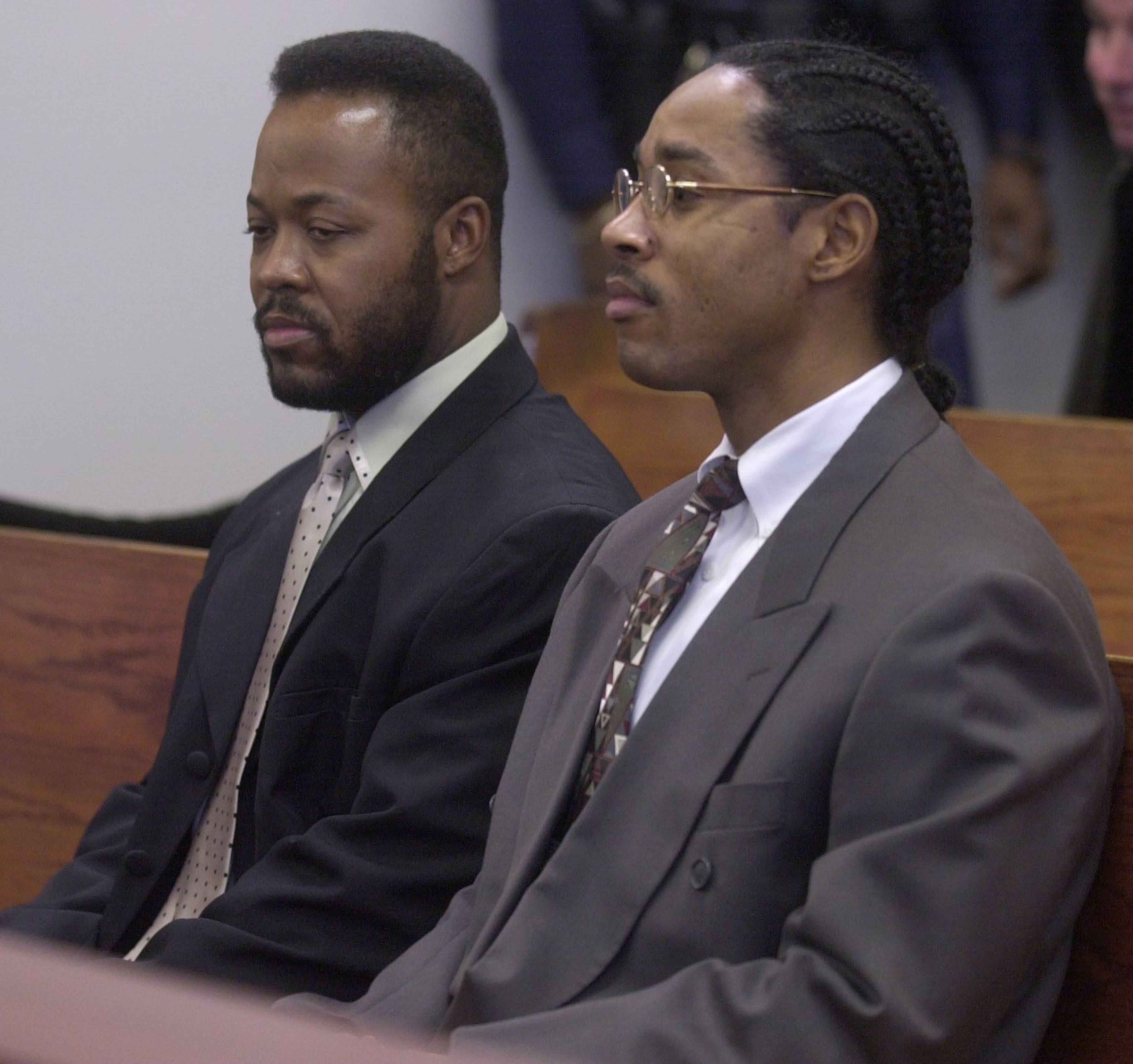Deja News: Sheriff-elect Derwin Brown’s murder shocked DeKalb back in 2000















When Derwin Brown died the night of Dec. 15, 2000, shot down in the driveway of his home, he was carrying a bouquet of roses.
The DeKalb County sheriff-elect, 46, had been celebrating the completion of his state sheriff’s training with friends and family at a restaurant, but the roses weren’t for him. They were for his wife, Phyllis. It was her birthday.

Journal-Constitution readers learned the lurid details of Brown’s slaying in the Sunday, Dec. 17, edition.
“Brown was shot several times after arriving home,” Brenden Sager wrote. “His wife and children had driven home separately and were inside (their home) when they heard gunshots. They found Brown lying in the driveway.”
“He was gunned down with multiple large-caliber weapons,” DeKalb County Public Safety Director Thomas Brown, who was unrelated to the Sheriff-elect, told the AJC.
Elected as a reform candidate, the 22-year veteran of the DeKalb County Police Department was slated to be sworn in as sheriff Dec. 18 “after winning a contentious election in which he promised to clean up the department and end corruption,” Sager reported, adding that “(Brown) recently informed 38 employees in the Sheriff’s Department ― from detention officers to top-level administrators ― that they would be fired when he took office.”

The news of Brown’s killing ― what DeKalb District Attorney J. Tom Morgan called an “assassination” ― was a shocking end to what had been a hard-fought electoral battle against incumbent Sheriff Sidney Dorsey.
Dorsey, who had orchestrated the killing, released a statement saying ‘our deepest sympathy is given to the family of Sheriff-elect Brown, all members of law enforcement and the community for the tragic death of my law enforcement brother... Our community must stay strong and work through this tragedy, with heavy hearts.”
The AJC’s Ben Smith filled readers in on exactly how bitter the feud between Dorsey and Brown had been. Brown first ran for sheriff against Dorsey in 1996, but finished third.
Brown’s election in the 2000 runoff, where he “trumped Dorsey by a 2-to-1 margin,” set the stage for continued conflict between the two men.
“The animosity ... continued after the election when Brown criticized the sheriff for instituting a sweeping list of eleventh-hour promotions before leaving office,” Smith noted, pointing out that “Brown also often complained that Dorsey was slow to assist him in the transition.”




Those supporting Brown’s quest to clean up alleged corruption in the department were left stunned and disheartened by his death.
“He had a great reputation of being an honest and straight-shooting cop,” DeKalb County Superior Court Judge Clarence Seeliger told the AJC. “One of the ironies of this is that nobody was more concerned about protecting victims of violence. It’s ironic as hell that he should die of violence after spending his life trying to end it.”
DeKalb Sgt. John Hughley, a fraternity brother and colleague of Brown’s, said the department “really needed him. He was going to be the man bringing change for us.
“He was a little bit of Robin Hood,” Hughley added. “He just wanted to do good for everyone.”
Dorsey was convicted of Brown’s murder on July 10, 2002, 19 months after the slaying. On Jan. 14, 2004, Dorsey began serving his life sentence, state Department of Corrections records show. In 2007, he confessed to his involvement in Brown’s murder.
Dorsey remains in state prison.
VIEW THE ORIGINAL PAGES HERE
To zoom in on the pages, click the three bars at top right. Then click "Original Document (PDF)."
ABOUT DEJA NEWS
In this series, we scour the AJC archives for the most interesting news from days gone by, show you original articles and update the story. If you have a story you’d like researched and featured in AJC Deja News, send an email with as much information as you know.


